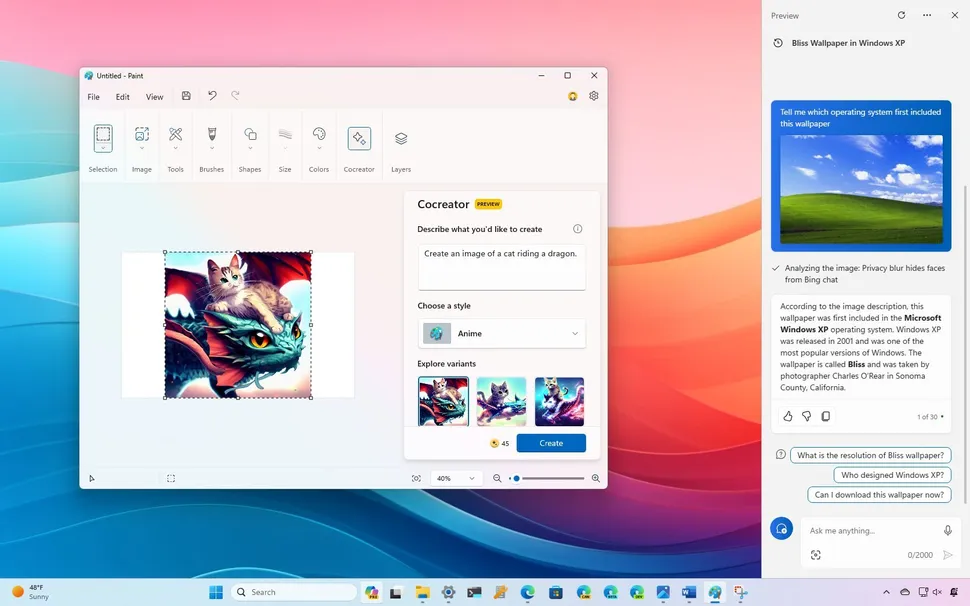“`html
AI in Content Creation: The Future of Digital Storytelling
Estimated reading time: 10 minutes
Key Takeaways
- The rapid advancement of emerging technology, particularly AI, is transforming content creation.
- By 2025, a significant majority of marketers (76%) will use generative AI for content creation, 71% for creative inspiration, and 63% for market data analysis.
- AI content creation involves AI applications generating text, images, video, or audio based on inputs.
- AI writing assistants offer functionalities like grammar correction, idea generation, and content summarization.
- AI significantly impacts SEO optimization, with 65% of businesses reporting improved SEO after AI implementation.
- Integrating AI into a content marketing strategy can boost efficiency, scale production, and personalize content.
- Ethical considerations and human oversight are crucial for responsible AI adoption.
- By 2026, up to 90% of online content could be AI-generated, with successful teams augmenting AI outputs.
Table of contents
- AI in Content Creation: The Future of Digital Storytelling
- Key Takeaways
- What is AI Content Creation?
- The Role of AI Writing Assistants
- AI’s Impact on SEO Optimization
- Integrating AI into Your Content Marketing Strategy
- Addressing Concerns and the Future of AI in Content
- Final Thoughts
- Frequently Asked Questions
The digital landscape is in constant flux, driven by the relentless march of emerging technology. At the forefront of this revolution is artificial intelligence (AI), which is not merely an adjacent tool but a fundamental force reshaping how we create, consume, and interact with information. Content creation, a cornerstone of marketing and communication, is experiencing a profound transformation thanks to AI. The term “**AI in content creation**” is no longer a futuristic concept; it’s a present reality, increasingly vital for anyone looking to thrive in today’s competitive digital arena. The benefits AI brings are immense, promising enhanced efficiency, unparalleled scalability, and novel avenues for creative expression. Consider this staggering statistic: by 2025, a significant 76% of marketers are projected to utilize generative AI (genAI) for content creation, with 71% leveraging it for creative inspiration and 63% for market data analysis. This highlights the immediate and widespread adoption of these technologies. This blog post will delve into the intricacies of AI content creation, explore the indispensable role of AI writing assistants, dissect its impact on **SEO optimization**, offer practical guidance on integrating AI into your content marketing strategy, and peer into the horizon for future trends. The widespread embrace of AI is undeniable; 90% of content marketers plan to incorporate AI into their workflows, and the results are already impressive, with AI-assisted blog tools reportedly boosting organic traffic by an astonishing 120% in just six months. This demonstrates the tangible power of AI in driving real-world marketing success.
What is AI Content Creation?
At its core, “**AI content creation**” refers to the sophisticated process where artificial intelligence applications autonomously generate various forms of content. This can encompass written text, compelling visuals, engaging video narratives, or even immersive audio experiences. The magic happens based on the inputs provided—be it detailed prompts, existing data patterns, or learned information from vast datasets. This technology fundamentally alters the traditional content lifecycle, enabling faster and more diverse content production.
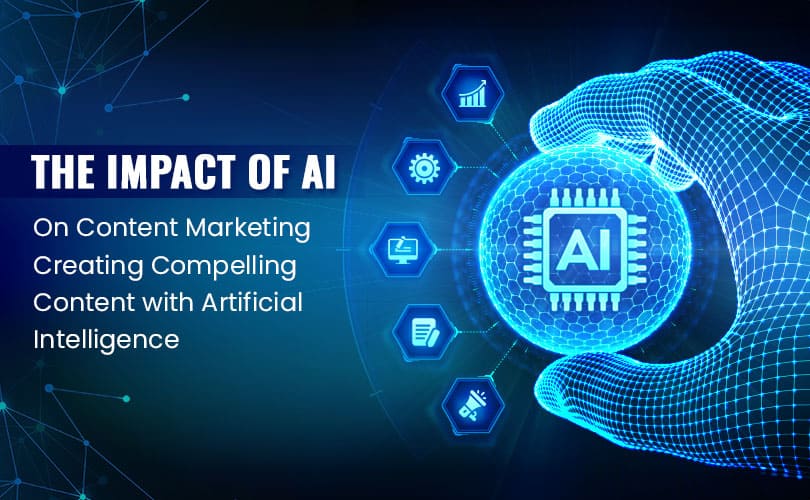
The underlying mechanism is as fascinating as it is powerful. AI systems meticulously analyze enormous datasets, identifying patterns, structures, and nuances within human language and creativity. They then employ advanced algorithms, most notably large language models (LLMs), to synthesize this knowledge into new, original content. Whether it’s crafting an in-depth article, scripting a video, or designing a graphic, AI leverages its analytical capabilities to produce outputs that can be remarkably sophisticated.

It is crucial, however, to differentiate AI-generated content from content crafted by human hands. While AI excels at pattern recognition and data-driven generation, it inherently lacks the human elements of emotional nuance, subjective experience, and genuine creativity. Humans bring a unique blend of intuition, empathy, contextual understanding, and an authentic voice that AI, in its current form, cannot fully replicate. AI is a tool that mimics understanding and creativity based on learned data, whereas human creation stems from lived experience and consciousness.

The Role of AI Writing Assistants
Within the expansive realm of AI content creation, “**AI writing assistant**” tools stand out as particularly invaluable. These intelligent platforms are designed to augment the writing process, making it more efficient, effective, and less prone to errors. They act as a co-pilot for writers, editors, and marketers, streamlining various aspects of content production.

The functionalities offered by these assistants are diverse and impactful:
- Advanced grammar and spelling correction: Moving beyond basic checks, these tools identify complex grammatical errors, suggest better sentence structures, and ensure a polished final output.
- Style suggestions and tone optimization: AI assistants can help maintain a consistent brand voice or adapt content to specific tones, whether formal, casual, or persuasive.
- Idea generation and brainstorming: Stuck for inspiration? These tools can analyze trends and your existing content to suggest relevant topics and angles, sparking creativity.
- Content summarization and structural organization: AI can quickly condense lengthy documents or help structure articles, ensuring a logical flow and easy readability.
These capabilities translate into practical, real-world applications that significantly enhance productivity. Imagine an AI writing assistant helping you:
- Draft comprehensive outlines for blog posts, saving hours of planning.
- Compose professional and persuasive emails that capture attention.
- Generate compelling meta descriptions that improve search engine visibility.
- Rewrite existing text for enhanced clarity, conciseness, and impact.
- Condense lengthy reports or research papers into digestible summaries.
The integration of AI writing assistants empowers creators to focus on higher-level strategy and creativity, while the AI handles the more tedious or time-consuming aspects of writing.

AI’s Impact on SEO Optimization
The influence of AI on **SEO optimization** is nothing short of revolutionary. For businesses aiming to improve their online visibility and organic search rankings, AI tools have become indispensable. A striking 65% of businesses report experiencing enhanced SEO outcomes after integrating AI into their strategies, underscoring its direct impact on digital performance.
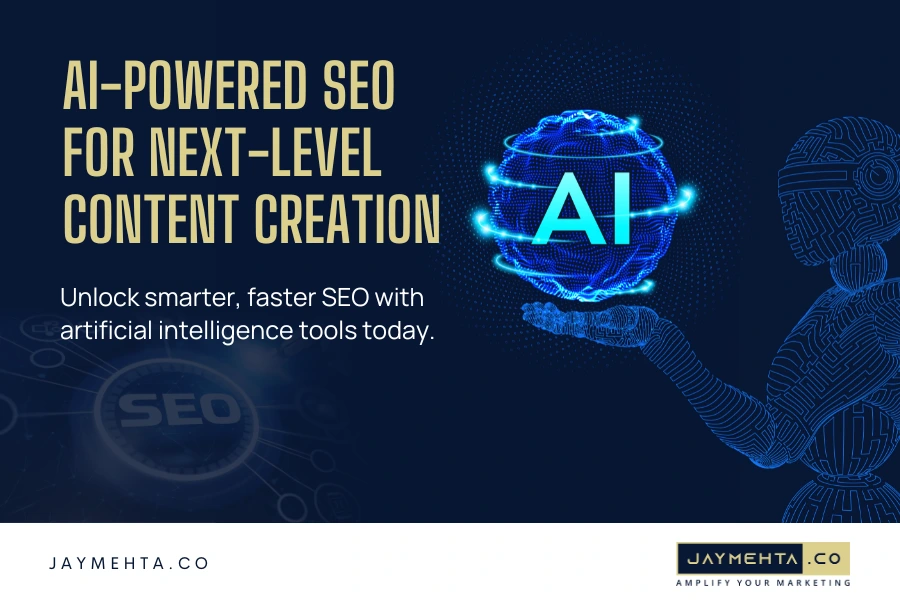
AI contributes to SEO in numerous interconnected ways:
- Streamlined keyword research: AI tools can analyze vast amounts of search data to identify relevant keywords, uncover niche opportunities, and group them into semantic clusters for more comprehensive targeting.
- In-depth competitor analysis: Understanding what your competitors are doing is vital. AI can rapidly analyze their content, backlink profiles, and on-page strategies to provide actionable insights into their search engine performance.
- Enhanced on-page optimization: AI assists in crafting SEO-friendly titles, compelling meta descriptions, and even suggests optimal content structures and keyword placement to align with search engine algorithms and user intent.
- Identification of content gaps: By analyzing search trends and competitor content, AI can pinpoint areas where your content is lacking, offering recommendations for new topics that are in demand.
Crucially, generative AI is empowering marketers to produce tailored, keyword-rich content with unprecedented scalability and frequency. This means not only can you create more content, but you can create more *effective* content that is precisely aligned with what search engines and users are looking for. This synergy between AI-driven insights and content production directly fuels better **SEO optimization**.
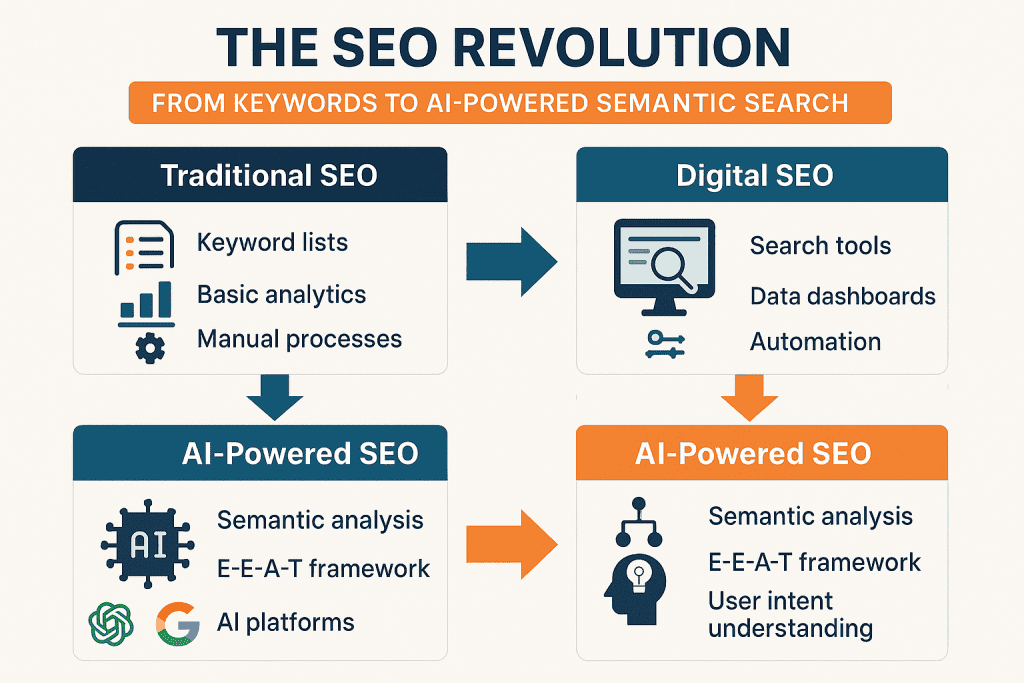
Integrating AI into Your Content Marketing Strategy
To truly harness the power of **AI in content creation**, a thoughtful integration into your overarching “**content marketing strategy**” is essential. This isn’t about simply adopting new tools; it’s about strategically embedding AI to amplify your existing efforts and unlock new potentials.

Here are practical methods for implementation:
- Leverage AI for data analysis: Use AI tools to sift through performance data, identify which content resonates most with your audience, and pinpoint critical content gaps that present opportunities.
- Automate repetitive tasks: Free up your team’s valuable time by automating tasks such as summarizing internal documents, repurposing existing blog content for social media snippets, or generating initial drafts of product descriptions.
- Personalize content at scale: Employ AI-powered insights into audience behavior, preferences, and demographics to create highly personalized content experiences that drive engagement and conversions.
The benefits of such integration are substantial. You can expect significant gains in efficiency, drastically accelerated go-to-market timelines for your content, the ability to scale content production dramatically without a proportional increase in resources, and optimized budget allocation. For many organizations, the automation of certain content production processes can even lead to reduced or entirely eliminated expenditures on external agencies, offering considerable cost savings.
Addressing Concerns and the Future of AI in Content
While the potential of AI in content creation is immense, it’s vital to acknowledge and address common concerns and limitations. One primary concern revolves around the potential deficit in genuine creativity and originality. AI models learn from existing data, which can sometimes lead to outputs that are derivative or lack a truly novel spark. There’s also the risk of inherent biases present in the training data manifesting in the generated content, and the ever-present danger of factual inaccuracies, where AI might produce content that sounds plausible but is ultimately incorrect or misleading.

Ethical considerations are paramount. Transparency is key; disclosing when content is AI-generated builds trust with your audience. Preventing the spread of misinformation is a collective responsibility, and human oversight is indispensable in fact-checking and ensuring accuracy. Furthermore, the ongoing need for human review is critical to maintain brand integrity and quality standards.

Looking ahead, projections suggest a significant shift: by 2026, it’s estimated that as much as 90% of online content could be AI-generated. However, the success stories will likely belong to teams that understand AI as a powerful assistant. The future lies in editing and augmenting AI outputs, ensuring they align with brand voice, maintain high quality, and are factually sound. AI should be viewed primarily as a tool to enhance human strategy, creativity, and judgment, rather than a complete replacement for human input.

Final Thoughts
The advantages that **AI in content creation** offers to organizations striving to enhance their “**content marketing strategy**” are clear and compelling. From dramatic improvements in efficiency and scalability to more robust **SEO optimization**, AI is a powerful catalyst for growth.
Achieving optimal results, however, is not solely about deploying AI tools. It demands a synergistic approach, blending the capabilities of AI with human creativity, critical thinking, and strategic direction. The most effective strategies will leverage AI as an intelligent assistant, augmenting human expertise rather than attempting to supplant it entirely.
As AI technology continues its rapid evolution, it is imperative that SEO principles, unwavering content quality, and ethical AI adoption remain at the forefront of your strategy. These foundational elements are crucial for navigating the complexities of the digital landscape and ensuring sustainable success.
Embrace the opportunities presented by **emerging technology** with a thoughtful and strategic mindset. By doing so, you can drive greater growth, foster innovation in your content marketing efforts, and stay ahead in an increasingly dynamic digital world. The rapid evolution of emerging technology is fundamentally reshaping how content is created and consumed.
Understanding how **AI in content creation** impacts **SEO optimization** is crucial for digital success.
Effective **content marketing strategy** can be significantly enhanced by leveraging **AI writing assistant** tools.
As AI continues to develop, staying informed about the **future of AI** and its role in various industries is vital.
The integration of AI into a business’s overall strategy, especially **content marketing strategy**, promises significant benefits.
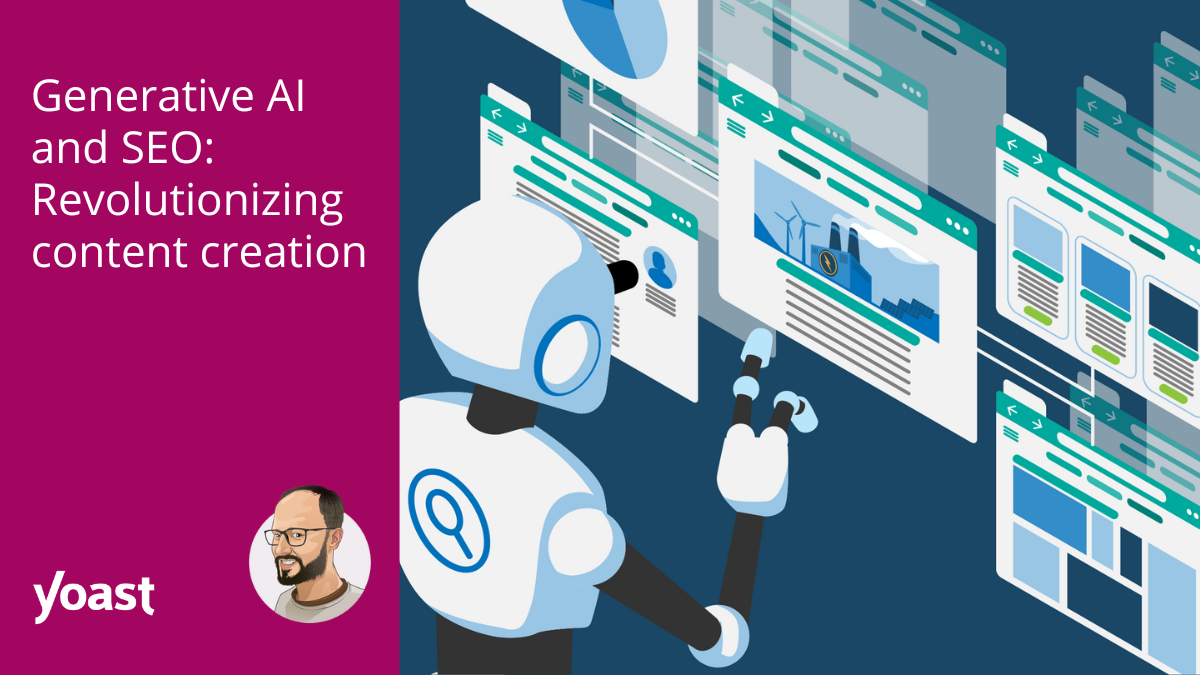
Frequently Asked Questions
- What are the main benefits of using AI in content creation? The main benefits include increased efficiency, scalability of content production, enhanced creativity through idea generation, improved SEO performance, and the ability to personalize content at scale.
- Can AI fully replace human content creators? No, AI is best viewed as a tool to augment human capabilities. While it can generate content, it lacks the nuanced understanding, emotional depth, and true creativity that human creators bring. Human oversight remains crucial for quality, originality, and ethical considerations.
- How does AI impact SEO? AI tools can significantly improve SEO by streamlining keyword research, performing competitor analysis, optimizing on-page elements like titles and meta descriptions, and identifying content gaps. This leads to better search engine rankings and increased organic traffic.
- What are the ethical considerations when using AI for content? Ethical considerations include maintaining transparency about AI-generated content, preventing the spread of misinformation, avoiding biases present in AI models, and ensuring human oversight for accuracy and brand integrity.
- Will AI make content creation cheaper? For many tasks, AI can reduce the time and resources required, potentially lowering costs. However, the effective use of AI often requires skilled human input for strategy, editing, and quality control, which still incurs costs. The overall impact on cost depends on the specific implementation and goals.
- What is the future of AI in content creation? The future involves deeper integration of AI into workflows, with a greater proportion of content being AI-generated. Successful strategies will focus on human-AI collaboration, where AI handles routine tasks and data analysis, while humans provide strategic direction, creativity, and final polish.
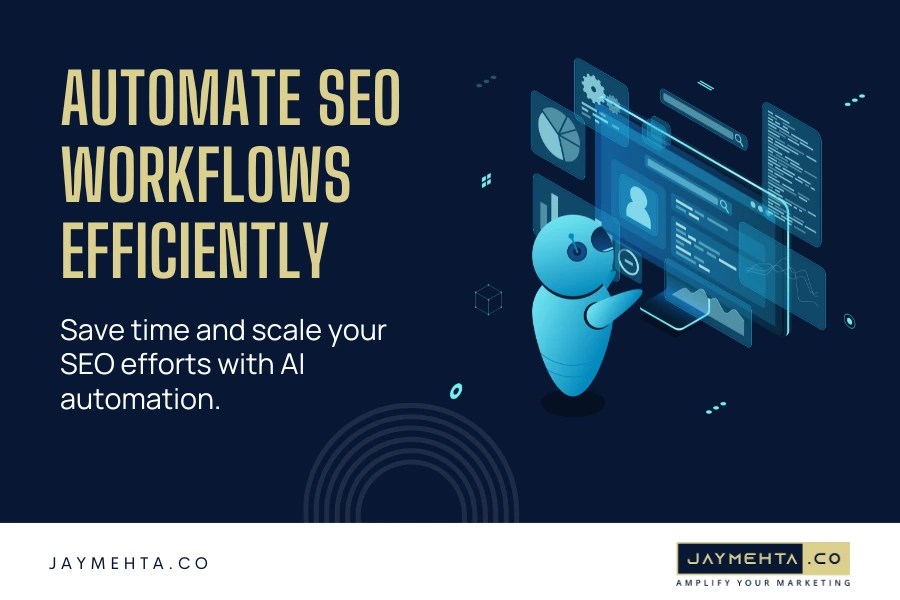

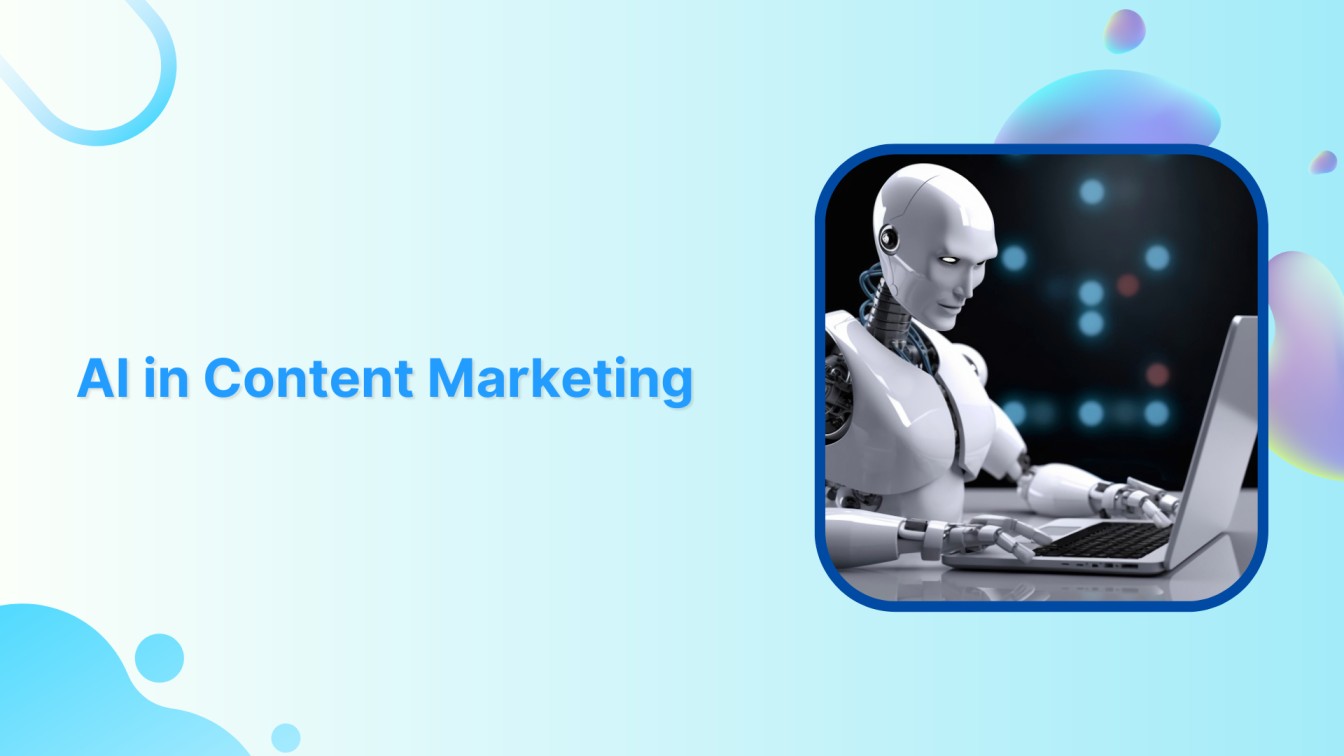


“`





